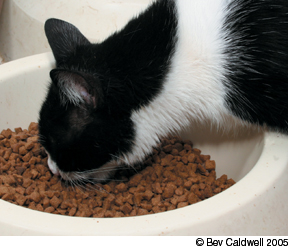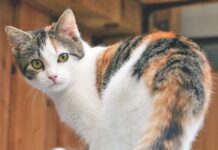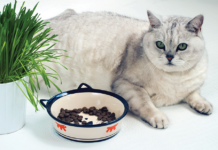Kidney failure is one of the leading causes of illness among older cats. Many owners who are unfamiliar with options to treat the disease assume its a death sentence. Cats can live for years with decreased kidney function, says Kathy Michel, DVM, an assistant professor of nutrition at the University of Pennsylvania School of Veterinary Medicine.
In addition to losing the ability to regulate water balance in the body, cats suffering from kidney failure are unable to eliminate waste products from the blood. Toxic waste builds up, resulting in uremic poisoning. Acute kidney failure has a sudden onset and may be caused by urinary tract blockage, poisoning, trauma to the kidneys, shock, blood clots or heart failure. If the underlying cause is treated immediately before there is permanent damage, acute kidney failure can be reversed. Chronic kidney failure occurs over the course of weeks or months, and the cause may be unknown. Its not necessarily a disease that we can point a finger at and say this is a cause, says Dr. Michel, who is board-certified by the American College of Veterinary Nutrition. In aging animals, it may have multiple causes.
A considerable amount of damage to the kidneys may occur before a cat shows signs of chronic kidney disease. It may be only after the cat has lost considerable weight that an owner notices that something is wrong. Other signs may include vomiting, sluggishness, dry or clumpy coat, foul breath that may have ammonia odor and increased thirst and increased urination. The cat is no longer able to concentrate the urine, and drinks more to compensate for the fluid loss, says Dr. Michel.
The only way to determine if a cat suffers from kidney failure is for a veterinarian to perform diagnostic testing. Results for the blood urea nitrogen (BUN), creatinine and phosphorous present, along with those from a complete urine analysis, will indicate whether the kidneys are functioning properly. BUN is a byproduct of protein metabolism and is one of the things that kidneys eliminate from the body, says Dr. Michel.
Nitrogen needs to be eliminated in the form of urea nitrogen, and the blood level elevates when the kidneys are not able to remove it. Thats one reason we see nausea and vomiting, says Dr. Michel. Other tests, such as X-rays or an abdominal ultrasound examination, may be necessary to better determine kidney health.
The Importance of Diet
Cats suffering from kidney failure need to be fed an appropriate diet. Because cats with renal failure usually lose weight, they must receive adequate calories from a complete and balanced diet – and not simply from a single food item, like boiled chicken or canned tuna.


288
Therapeutic diets are available from your veterinarian, but one potential problem of attempting to feed them is that many cats wont eat the new food, causing weight loss to continue.
If your cat has been diagnosed with renal failure, make certain your cats caloric intake is adequate to prevent further weight loss. The cat needs to maintain weight in good body condition, which is best achieved by feeding an acceptable diet that the cat is willing to eat, says Dr. Michel. Unfortunately, that may not always be a therapeutic diet.
Cats need protein because they utilize it for energy metabolism, and the type of protein to feed cats should be animal-based. Reduced protein diets may minimize the BUN, but because cats utilize protein for energy metabolism, that does not allow much leeway; cats are carnivores, and dietary protein can only be restricted so much. Its a balancing act because theres a point at which you restrict protein that youll create a protein deficiency, says Dr. Michel.
If attempting to feed your cat a new diet, slowly introduce the food by mixing it with some of the food your cat normally eats and monitor the intake. If your cat refuses the new food, talk to your veterinarian about alternative diets or different strategies. Just remember that the number-one priority is adequate intake, says Dr. Michel.
Restriction of dietary phosphorus has proven beneficial for cats in renal failure, although the reasons are unclear. If the therapeutic diet is not sufficient to lower serum phosphorus concentrations alone, or if the patient is eating a commercial food or homemade diet as opposed to a therapeutic diet, your veterinarian may prescribe a drug that helps trap phosphorous while its still in the intestines, thereby keeping it from entering the bloodstream. If your cat has renal failure, it is especially important to communicate with your veterinarian, perhaps even more so if your cat eats a home-prepared diet or a significant amount of table food.


